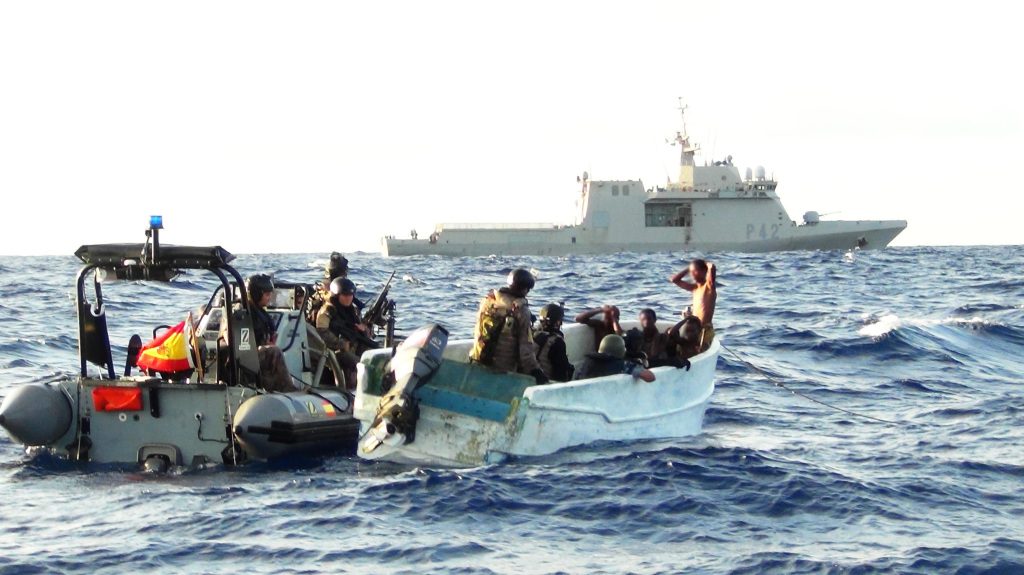Buhari Seeks Japanese Support To Combat Piracy In Gulf Of Guinea
President Muhammadu Buhari Thursday in Yokohama, Japan, sought the support of the Asian government in combating piracy in the Gulf of Guinea as well as illegal fishing in that region.
The President made the request during a bilateral meeting between the Nigerian delegation and Japanese officials led by Prime Minister Shinzo Abe, on the margins of the Tokyo International Conference on African Development (TICAD7).
The Nigerian leader, who commended Mr Abe for the invitation extended to him to attend the triennial Forum, also thanked the Japanese government for attending the pioneer celebration of June 12 as Democracy Day in Nigeria.
In his remarks, Prime Minister Abe welcomed President Buhari’s participation at TICAD7 and the country’s signing of the African Continental Free Trade Agreement.
Commending the Buhari administration for taking Nigeria to the Next Level, Mr Abe pledged a $300,000 support for Nigeria’s Defence College as well as 12 million Yen for the country’s public health sector.
He also pledged his country’s support for Nigeria’s Presidency of the 74th Session of the United Nations General Assembly, while seeking Nigeria’s support for Japan’s bid to occupy some global positions.
Also on Thursday in Yokohama, Nigeria and the European Union signed a €50 million Memorandum of Understanding (MoU) to support humanitarian and development efforts in the country’s North East region.
The cooperation agreement which was signed by Nigeria’s Foreign Affairs Minister, Geoffrey Onyeama and EU Commissioner for International Cooperation and Development, Mr Neven Mimica, would bring the total EU support to the country to €562million for 2014-2020.
President Buhari, who thanked the EU member states for their support especially for the North East, described as “pathetic the situation in internally displaced camps.”
He also called for further assistance to improve youth education in the region to take them out of poverty.
Commissioner Mimica said Nigeria’s request for enhanced assistance would be given priority consideration since it had come at the time that the EU was in the process of preparing its seven-year budget.





